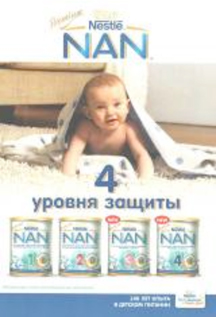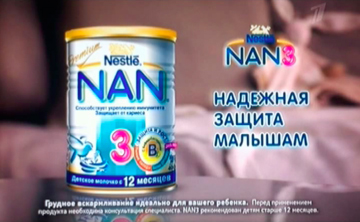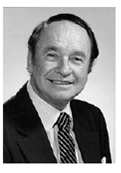News Roundup
Creating new markets: ‘Growing up’ and ‘Toddler’ milks
As more countries are clamping down on follow-on milk advertising, companies are building new markets for formulas for 1-5 year--olds. EU policy makers are in a quandry - aware that this is a marketing scam and that there is no evidence that fortified formulas for older babies are needed, but unable or perhaps unwilling to ban them. Young children need to eat real foods ideally alongside continued breastfeeding. Infant formula can go on being used after 6 months. The new formulas invariably share brands and logos with infant formulas, so promote the whole range. They are also expensive and with high levels of sugar, increase the risk of obesity. But the alluring claims trigger fears in parents that real foods miss essential nutritents.
● A report by the German Federal Institute for Risk Assessment (BfR) (16.08.2011) found that ‘toddler’ milk does not offer any advantage compared to reduced fat cow milk. “From a nutritional and physiological point of view these special toddler milks are not necessary”, says BfR President, Professor Dr. Andreas Hensel. "The manufacturers of toddler milk drinks often refer to high consumption amounts on the packaging of their products. According to these recommended consumptions children would consume through children's milk alone high amounts of macronutrients and micronutrients. Within the framework of the overall diet this would favour in the long-term an oversupply with all nutrients. From a nutritional physiological and health point of view this is problematic."
● The italian consumer association Altroconsumo analysed these products and published a statement very similar to the german one in 2009. CLICK Here for the Report in Italian For the French HERE
● A survey in 2010 by the Hong Kong Department of Health (HKSAR) found that “children who drank more milk (mainly formula milk) than the recommended volume generally consumed smaller amounts of grains, vegetables and fruits. Use of the bottle and parents’ misconceptions about the nutritional benefits of formula milk might have contributed to the high milk intake and the choice of milk.”
● Gooze et al, Prolonged Bottle Use and Obesity at 5.5 Years of Age in US Children J Pediatrics 2011, Sept; 159 (3):431-6
- A survey by the German consumer centres on the products being sold as “Kindermilch” (“milk for children”) targeting the age from 12 months found that Kindermilch was up to four times more expensive than normal milk, costing parents up to 245 euros more each year. http://www.vzhh.de/ernaehrung/129727/kostenfalle-kindermilch.aspx
- CLICK HERE for a PDF of the report Fortified Milks for Children by First Steps Nutrition Trust. Page 61 (Table 17) is a chart showing the amount of sugar in Growing Up milks
- http://www.firststepsnutrition.org/pdfs/Fortified%20milks%20-%20FINAL.pdf
The promotional leaflet for Nestlé’s Nan formula range shown below has been distributed to health facilities in Armenia -- a higher risk country according to Nestlé and where it says it follows the International Code.

The No 3 version for one-year-olds has the same name and branding as the infant formulas from birth and is advertised on a Russian TV Channel on Armenian cable.

There are promotions like this and worse all over the world.
Baby Milk Action supporters have been asking Nestlé to stop these violations in the ongoing Email Nestlé campaign.
Breastfeeding in the 2nd year of life can provide 29% of energy requirements, 43% of protein, 75% of Vitamin A, 76% of Folate, 94% of Vitamin B12 and 60% of Vitamin C. Dewey. KG. Nutrition, Growth, and Complementary Feeding of the Breastfed Infant. Pediatric Clinics of N.American. Feb 2001;48(1).
South African law - at last?
The South African Department of Health has launched a new consultation on the long-awaited and much-needed Regulations Relating to Foodstuffs for Infants and Young Children. Find our comments on this link before the deadline of 2nd May: http://info.babymilkaction.org/southafrica
http://www.doh.gov.za/show.php?id=3439
http://www.doh.gov.za/docs/foodcontrol/comments/2012/infants_regs.pdf
Prof Michael Latham dies
 Prof. Michael Latham, a longtime friend of Baby Milk Action and IBFAN, one of the giants in the long struggle to protect breastfeeding from commercial misinformation, died in Boston,1st April 2011 at 82. Michael was always focused on the latest threats to infant health and just a few months before he died co-authored a key article about the importance of breastfeeding after 6 months and the risks of reliance on fortified foods.
Prof. Michael Latham, a longtime friend of Baby Milk Action and IBFAN, one of the giants in the long struggle to protect breastfeeding from commercial misinformation, died in Boston,1st April 2011 at 82. Michael was always focused on the latest threats to infant health and just a few months before he died co-authored a key article about the importance of breastfeeding after 6 months and the risks of reliance on fortified foods.
RUTF stuff. Can the children be saved with fortified peanut paste
World Public Health Nutrition www.wphna.org/
| Attachment | Size |
|---|---|
| altroconsumo09lattidicrescita.pdf | 257.9 KB |
| altroconsumo09laitsFRENCH2.pdf | 128.7 KB |






